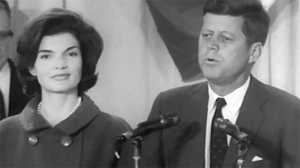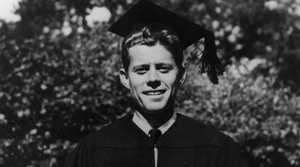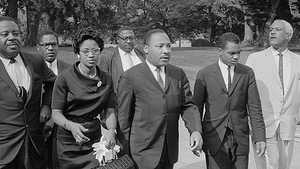JFK and Communism
In the fall of 1963 American efforts to build a democratic firewall against Communism in South Vietnam were failing. The country's president, Ngo Dinh Diem, ran the nation like a fiefdom. Many Vietnamese began to gravitate toward the Communist opposition. In the White House, a frustrated John F. Kennedy struggled to get Diem -- and the Communist insurgency -- under control.
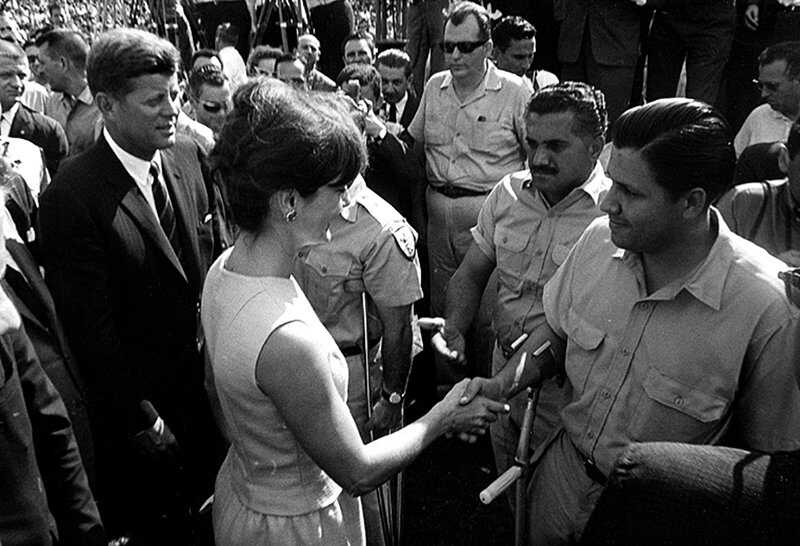
Kennedy had outlined his plan for stopping the spread of communism in his inauguration speech two years before. America would, he said, "pay any price, bear any burden, meet any hardship, support any friend, oppose any foe to assure the survival and success of liberty." Developing nations could expect America to "help them help themselves."
The young president's first battle with Communism came just three months after his inauguration -- in Fidel Castro's Cuba. With the support of the Soviet Union, Cuba had been working to export its revolutionary ideals to other Latin American countries. Castro's message of revolution was well received in the region, where many people struggled under repressive regimes. But in the United States, Castro was seen as a growing threat.
Under President Dwight Eisenhower, the C.I.A. had prepared a plan for an invasion of Cuba. Cuban exiles covertly trained and armed by the United States would attack Cuba's coast at the Bay of Pigs. Intelligence analysts believed that the Cuban people would rise up in support of the invaders and topple Castro.
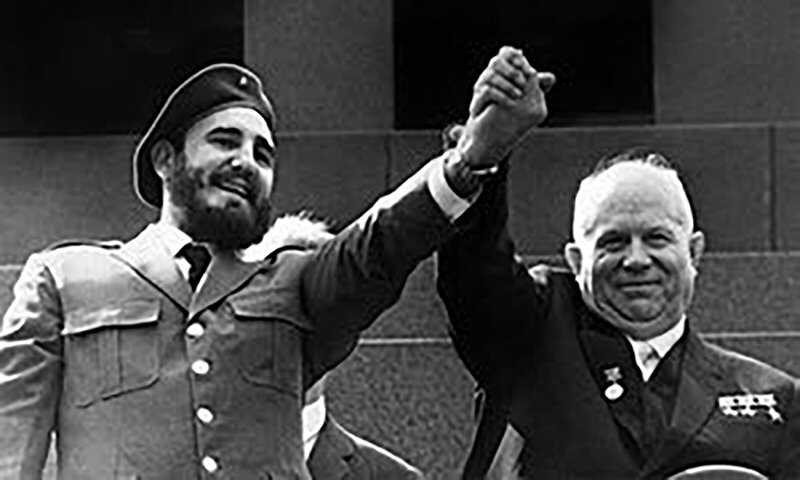
Kennedy approved the invasion, and on April 17, 1961, it began. Their forces vastly outnumbered, the invasion forces were swiftly turned back; the U.S. connection quickly emerged. Kennedy, the purported defender of freedom and democracy, had been caught interfering with the internal affairs of a sovereign nation. Perhaps more significantly, he had failed to provide American air support for the beleaguered invaders. Bay of Pigs was a fiasco for the Kennedy administration. Shortly thereafter, the Soviets made a play for Berlin.
In the divided German city, capitalist democracy proved all too alluring for East Germans. They fled to West Berlin by the thousands, embarrassing the Soviets and threatening the Communist hold on Eastern Europe. In June 1961 Soviet Premier Nikita Khrushchev threatened to take West Berlin under Communist rule by force.
John Kennedy had long ago learned the lesson of appeasement in Europe. He met Khrushchev's challenge with a force of his own, increasing the size of America's combat forces and obtaining billions of dollars for nuclear and conventional weapons. Khrushchev parried, dividing Berlin with a cement wall, barbed wire, and a line of army tanks. The enemies stared at each other across the wall, but the peace held.
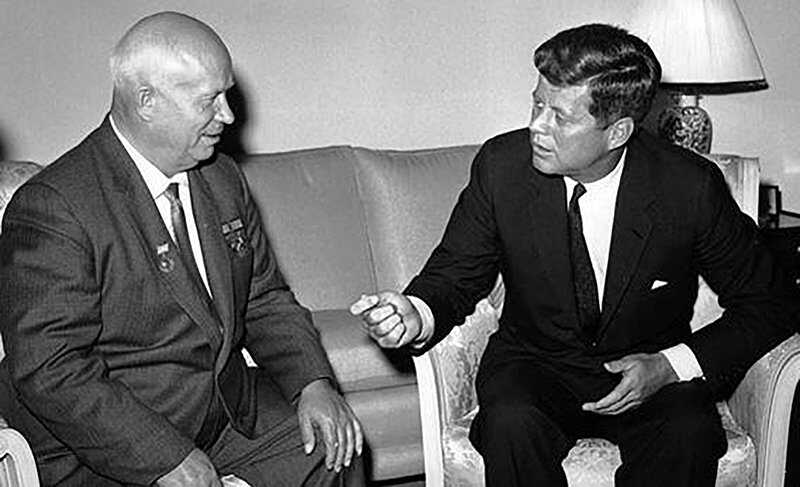
Khrushchev continued to probe for American weakness. In response to the Bay of Pigs and to American nuclear missiles posted near the Russian border in Turkey, the Soviet leader approved the installation of nuclear missiles in Cuba. An American reconnaissance plane discovered the missile sites in October, 1962.
For days, Kennedy and his advisors heatedly debated a range of military and diplomatic responses. Finally, a conclusion was reached: while the risk of war was great, to show weakness might be worse.
On October 22, in a televised address, Kennedy revealed the crisis to the American public. He announced a naval "quarantine," or blockade, of Cuba which would remain in effect until the Soviets withdrew their missiles. He also warned that the launching of Cuban missiles against any nation in the Western Hemisphere would be regarded as an attack on the United States and would result in a "full retaliatory response" on the Soviet Union. The world stood closer than it ever had to full-scale nuclear war.
Within a week, Khrushchev capitulated -- but not without some American concessions. The Soviets withdrew their missiles in return for public assurances that the U.S. would not invade Cuba. In addition, Kennedy secretly agreed to withdraw missiles from the Turkish bases.
Berlin and the Cuban Missile Crisis were decided quickly, but other situations would not be resolved as quickly. In South Vietnam, the Communist insurgency showed no signs of letting up.
Some of Kennedy's "advisers" warned him that American involvement could mire America in a bloody, protracted war. Despite these warnings, the president increased financial and military assistance to the Diem government. By the end of 1962, more than 15,000 American advisors were in South Vietnam, and US spending there had passed the $2 billion mark. The results were not encouraging.
Diem seemed more interested in establishing an autocratic regime than he did in promoting democracy. He consolidated power among his family members and refused to share power with local leaders. A Catholic, Diem oppressed the Buddhists who made up the overwhelming majority of South Vietnam's population. Kennedy threatened Diem with a loss of American aid if he did not institute democratic reforms. Diem ignored these warnings, and support for the Communists grew.
As 1963 wore on, Kennedy considered his options. He could commit further, even send in American combat troops. He could withdraw, and let the Communists claim victory. Kennedy found neither solution palatable. Then another option developed. Some of Diem's generals began to plot a coup against their leader. Kennedy, who had promised to help developing nations help themselves, gave his approval.
On November 2, 1963, Ngo Dinh Diem died at the hands of his generals. In South Vietnam, citizens responded positively to the coup. With Diem out of the way, hopes rose that South Vietnam could stave off the Communists.
Less than two weeks after Diem's death, Kennedy himself was assassinated. The man who promised the world he would stand up to the Communists had done so -- for better and for worse. Now another Cold Warrior, Lyndon Baines Johnson, would take his place. And in the jungles of Vietnam, America's bloodiest Cold War confrontation was only beginning.




